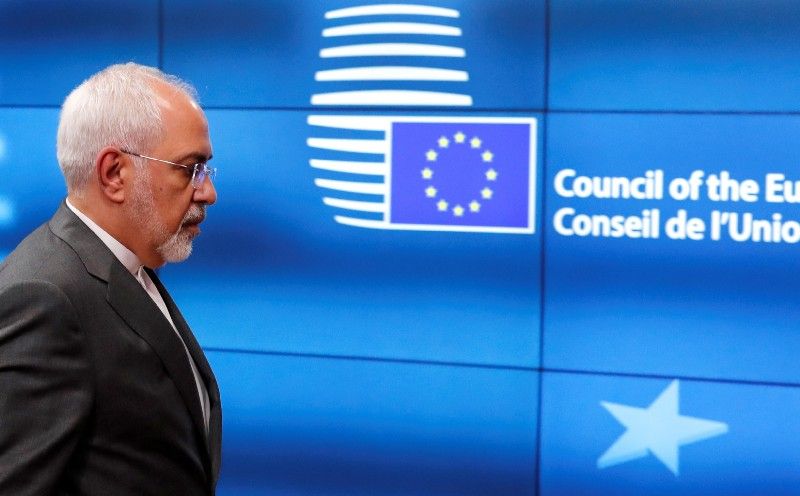May 16, 2018
And then there were five — well, P4 +1 if you’re really counting. Last week’s decision by the US to exit the Iran deal has set off a flurry of diplomacy among the deal’s remaining signatories, four of the five permanent members of the UN Security Council (P4) and Germany (+1), to try and salvage the agreement.
Yesterday, Iranian Foreign Minister Javid Zarif (pictured above) arrived in Brussels, after earlier trips to Beijing and Moscow, to talk to his counterparts about the tough road ahead.
Here’s Gabe with details on how the key players view things:
Europe: The billion-euro question is whether Europe’s leaders can keep the continent’s firms invested in Iran while the threat of US sanctions looms, as Alex Kliment pointed out yesterday. Big multinationals like Siemens and Airbus risk losing billions. But thousands of smaller European firms, less reliant on the US, now trade with Iran as well — some 10,000 in Germany alone. Can Europe keep enough cash flowing to convince Tehran that it hasn’t broken its side of the bargain? The clock is ticking…
China: For Iran, China represents an economic and security lifeline. China is Iran’s top trade partner and a large consumer of Iranian crude oil. Iran is a crucial link in China’s expansive One Belt, One Road initiative. And the threat of US sanctions bites less for Chinese firms, which have fewer tie-ups in the West — so Chinese investment in Iran will continue. The biggest worry for Beijing is escalation that leads to conflict in a region to which it has increasingly tied its economic fortunes.
Russia: The threat of US sanctions is nothing new for Moscow. And Russia’s involvement in Iran is more oriented toward security issues — in Syria and across the region — than economics. Yes, scrapping the deal has boosted oil prices, a temporary boon for the Russian economy. But long term, Russia is far more interested in preventing increased proxy conflict throughout the region that could blowback directly on its troops stationed in Syria.
What’s at stake? If Iran’s chief diplomat returns home with nothing to show, domestic hardliners — who never cared for the deal in the first place — could seize the opportunity to challenge more moderate figures, only furthering the distance between Tehran and the West.
More For You
- YouTube
It's one of the few sources Americans across the political spectrum still rely on.
Most Popular
Think you know what's going on around the world? Here's your chance to prove it.
America’s new National Security Strategy confirms what Europeans have feared for months: Washington now sees a strong, unified European Union as a problem to be solved, not an ally to be supported.
Sports inspire greatness, determination, and resilience — both on and off the field. Bank of America is proud to celebrate the achievements of and uplift communities through the power of sports. Learn more about how Bank of America supports athletes in life and in the game.
© 2025 GZERO Media. All Rights Reserved | A Eurasia Group media company.
